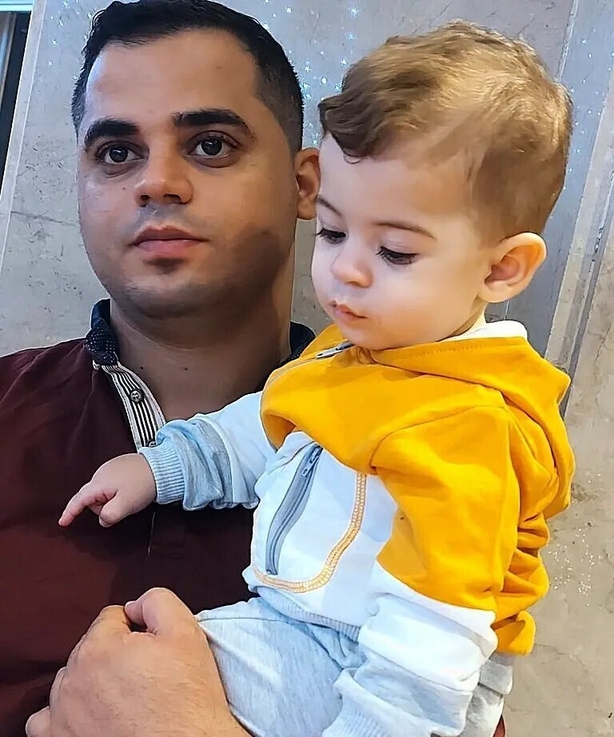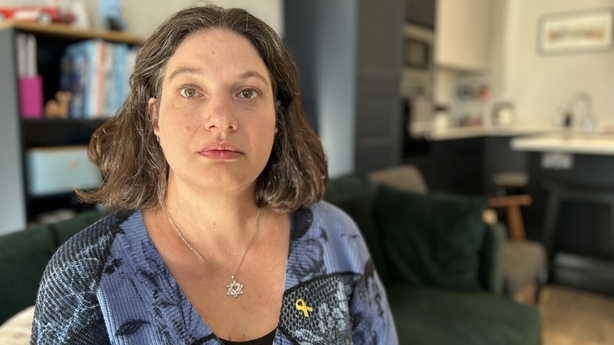Over 5,000km away, the war in Gaza has hung heavily over Dr Mahmoud Abmarzouk's Navan home, indeed it has visited his front door. Early last year, his brother Ahmed was killed in an Israeli airstrike in Rafah.
"It’s really devastating," says Dr Abmarzouk. He tells us Ahmed was 30 years old, a father of one and a social worker.
"There is no word to express the feeling you have when you're not seeing him again. He was my younger brother. I remember him as a toddler, I taught him how to walk.
"It is really sad, it's heartbreaking. You feel the whole world is collapsed. Where is the future for his little boy?" he asks.

Life remains very difficult for Mahmoud’s family in Rafah. Their homes are gone and they, including his elderly parents, are now living in tents.
"My five sisters, my other brothers, my dad and my mom, they are all in tents. Imagine that. Your whole family. They are in tents with this harsh winter near the seaside with all the wind blowing and the temperature is very low now… they got flooded."
"The scar will never go away"
For his family in Gaza and for many others, the challenges are daunting. As well as the massive loss of life, livelihoods and homes have been destroyed.
"So many families have been erased from the civilian record. Over 46,000 have been killed," he says. He points too to the universities and hospitals that have been destroyed.
"The war has left Gaza without any infrastructure," Mahmoud says. He hopes the ceasefire will hold long enough for the initial rebuilding to begin and says anything that stops the violence is welcomed.
When word of an agreement emerged last night, his family in Dublin were ecstatic.
"We were so, so happy. We feel that it will be a bit easier for the people in Palestine. But the scar will never go away. It will give us a little bit of hope for Palestinians that the resilience and the resistance of Palestinian people and the steadfast of Palestinian people will remain," he says.
We need your consent to load this rte-player contentWe use rte-player to manage extra content that can set cookies on your device and collect data about your activity. Please review their details and accept them to load the content.Manage Preferences
The last 15 months have been tough too for Orli Degani.
She has family and friends in Israel, their safety is a constant worry. She knows too of hostages.
"We've been waiting for this for a long, long time," she says.
"The feeling yesterday when it was announced, I can only describe it as sad relief. It's a relief to see the constant fighting stop. It's a relief to see the hostages return home, and a ceasefire is the first step into a lasting peace.
"But it's also sad, so sad that it took us so long to get us here, and that it came at such a dear price and with such huge amount of suffering.
"I really hope it will allow the people in Israel and in Gaza to start rebuilding their lives."

She hopes that any deal will help heal relations here too which, she says, have been damaged.
"We are feeling isolated. We felt for quite a bit of it, unwelcome here. And though I am wearing my Star of David here in the house, at the moment, I don't usually go out with it.
"Most people will not leave the house wearing anything that will make people recognise them as Jewish.
"We have friends whose son was called a murderer while walking to university. They left Ireland because of the uptake in anti-semitism. So it has been tough," she says.
Back in Navan, Mahmoud is looking at a photo of his younger brother, his child in his arms.
This ceasefire deal has come too late for him and for tens of thousands of others.







